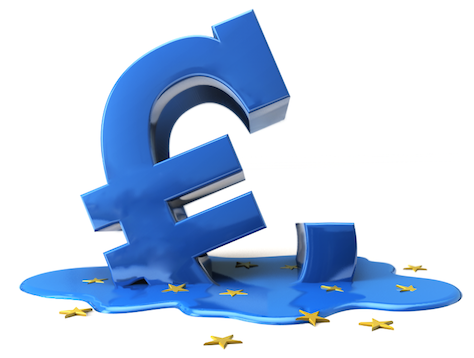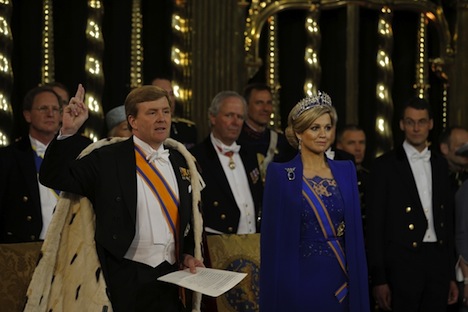
If there’s one thing that unites Europeans, it’s the concept that they are better — more enlightened, more cultured and more sophisticated — than Americans.![]()
![]()
That was especially true during the presidency of George W. Bush, when France, Germany and other leading anchors of the European Union vociferously opposed the US-led invasion of Iraq. In 2002, it sometimes seemed like German chancellor Gerhard Schröder was running against Bush, not against his conservative German challenger, Bavarian premier Edmund Stoiber.
Europeans might be leaning in a similar direction in the Trump era, even though it’s hardly been a month since Donald Trump took office. In the days after Trump’s surprise election last November (and after the Brexit vote last summer), populists like Geert Wilders in The Netherlands and Marine Le Pen in France had reason to believe that Trump’s victory would give political tailwinds to their own electoral efforts in 2017.
If anything, however, Europeans are pulling back from populism in the first months of 2017. As four of the founding EU countries gear up for elections in the coming months — the first will be The Netherlands in just nine days — the threat of a Trump-style populist surging to power seems increasingly farfetched.
Maybe Europeans simply outright disdain what they perceive as the vulgar, Jacksonian urges of American voters. Maybe it’s shock at the way Trump’s inexperienced administration has bumbled through its first 40 days or the troubles of British prime minister Theresa May in navigating her country through the thicket of Brexit and withdrawing from the European Union.
More likely though, it could be that Trump’s oft-stated criticism of NATO and praise for Russian president Vladimir Putin have finally shaken Europeans out of the fog that’s gathered for 70 years under the penumbra of pax Americana. Even as officials like US vice president Mike Pence and US defense secretary James Mattis reassure European allies that the United States is committed to the trans-Atlantic security alliance, Trump continues to muse about NATO being obsolete (as recently as the week before his inauguration). Furthermore, the America-first nationalism that emerged from Trump’s successful campaign has continued into his administration and promises a new, more skeptical approach to prior American obligations not only in Europe, but worldwide. Just ten days into office, Trump trashed the European Union as a ‘threat’ to the United States, only to back down and call it ‘wonderful’ in February. Breitbart, the outlet that senior Trump strategist Stephen Bannon headed until last summer, ran a headline in January proclaiming that Trump would make the European Union ‘history.’
All of which has left Europeans also rethinking their security position and considering a day when American security guarantees are withdrawn — or simply too unreliable to be trusted.
Arguably, NATO always undermined the European Union, in structural terms, because NATO has been the far more important body for guaranteeing trans-Atlantic security. Though Federica Mogherini is a talented and saavy diplomat, the EU high representative for foreign affairs and security policy is far less important to trans-Atlantic security than the NATO secretary-general (currently, former Norwegian prime minster Jens Stoltenberg). While the stakes of EU policymaking — trade, consumer and environmental regulation, competition law and other economic regulation and a good deal of European fiscal and monetary policy — aren’t low, they would be higher still if the European Union, instead of NATO, were truly responsible for European defense and security. That’s perhaps one reason why the European Union has been stuck since the early 2000s in its own ‘Articles of Confederation’ moment — too far united to pull the entire scheme apart, not yet united enough to pull closer together.
Perhaps, alternatively, it has nothing to do with blowback to Trump or Brexit, and voters in the core western European countries, which are accustomed to a less Schumpeterian form of capitalism, are simply more immune to radical swings than their counterparts subject to the janglier peaks and valleys of Anglo-Saxon capitalism. It’s not too much to think that, possibly, in the aftermath of both Brexit and Trump’s election, core Europe, unleashed from the toxic dynamic of British euroscepticism and emboldened to forge new relationships from outside the American security aegis, may be finding a new confidence after years of economic ennui.
Nevertheless, populists across Europe who tried to cloak themselves in the warm embrace of Trumpismo throughout 2016 are increasingly struggling in 2017. A dark and uncertain 2016 is giving way rapidly to a European spring in 2017 where centrists, progressives and conservatives alike are finding ways to push back against populist and xenophobic threats. Continue reading Trump effect: Europe turning toward integration, away from populists

